How to Grow the Best Tomatoes Ever (12 Tips)
I’m a garden killer. It’s what I do. Every year we plant. Every year things die.
We’ve tried planting seeds, using starters indoors & transplanting, planting starters outside & using raised beds. No luck. We know how frugal (and YUMMY) growing your own fruits and veggies can be, so…
- We water.
- We fertilize.
- We get the best soil.
And then all of our plants die! Well, ALMOST all of our plants die…
Last year we had tomatoes, tomatoes, and more tomatoes. Our tomato plant was HUGE and it produced a ridiculous amount of tomatoes, almost nonstop. We couldn’t have killed that tomato plant if we tried. It kept on growing well past the first freeze.
And in October, when our neighbors/friends/family/mailman were all tomatoed out, we moved the plant into the garage and waited for it to die. It didn’t. We had tomatoes until almost Thanksgiving. It was wild.
Tomato Gardening Tips
Now that I am a tomato growing expert, I’m going to share some tomato growing tips that I’ve learned along the way. Hopefully, these tips will help you grow the best tomatoes ever!
1. Start early inside
If you are starting with seeds, plant them indoors so you can get a jump start on planting outside as soon as the last frost has passed. You can start planting your seeds indoors about a month, or a month and a half before transferring them outdoors. Don’t plant them too early!
Tip: Be sure to soak the seeds before planting for faster germination.
2. Place the seed trays in a warm area
This will help your tomato seeds grow into seedlings more quickly. Note that warm does not mean oven hot. You’ll want to keep the seed trays out of direct sunlight but kept at a temperature of about 70-80 degrees Fahrenheit (source).
3. Use new potting soil for seedlings
This will help prevent your tomato seedlings from damping off, which is fatal to tomato seedlings and commonly caused by overly damp conditions.
4. Label your seedlings
If you’re planting multiple varieties of tomato plants, be sure to label them as you go! All tomatoes plants look pretty much alike so it’s easy to mix them up otherwise.
5. Snip off all but the strongest seedling in each pot
Once your tomato seedlings get going and are around 3 inches tall, you might notice small growths happening between the branch and the main stem of your plants. You can snip these off so that more energy goes toward producing fruit rather than growing new branches.
6. Start fertilizing when seedlings have four true leaves
The first set of true leaves on your tomato seedlings should start to grow about one month after germination (source). The others will come soon after. This is when you can start fertilizing.
Note: You may want to dilute the fertilizer depending on how concentrated it is. Too much fertilizer can burn the plant.
7. Give the seedlings enough light
Light is essential to your tomato plant (and basically every plant)! Without it, they’ll grow too leggy and flop over.
8. Don’t try to resuscitate flopped seedlings
Speaking of flopping over, if one of your seedlings gives out, it’s past the point of no return. Give them a decent burial in the compost pile.
9. Do not eat thinned seedlings
You may do this with lettuces, carrots, and leafy greens, but tomato vines, even the little ones, are toxic. No, really they are, and so are potato plants. They’re both parts of the nightshade family.
10. Reuse items for frugal tomato gardening
We’ve written a post on reusing items for gardening tools, and there are a few ways to do this with your tomato plants. For example, you can use waxed paper cups with holes poked in the bottom for transplants. Or, for bigger transplants, use 1/2 gallon waxed paper juice containers with holes poked in the bottom.
For the biggest transplants, use 1-gallon milk containers with – you guessed it- holes poked in the bottom and the top cut off.
11. Fight frost
There are a couple of different ways to fend off frost from your tomato plants. You can wrap mini Christmas lights (not LED they don’t get warm) around the tomato cage for larger plants, and cover the small transplants with straw.
12. Watch out for cold nighttime temperatures
Tomato plants can survive some low temperatures at night, but once it gets below 50 degrees Fahrenheit, you might start to see problems. That’s when you’ll want to bring your plant containers inside. You can also try wrapping the containers with black plastic as it will help absorb and hold heat.
For smaller plants, you can put plastic gallon milk jugs with the tops cut off over them, like a mini greenhouse.
Final Thoughts
Want one last thing to take away from these tomato tips? Just remember the basics: to keep your tomato plants healthy, they need 8 hours of sunlight every day, rich soil and consistent watering.
If you follow all of these tips and you’re still unsuccessful, repeat after me (or with me rather), “We can’t win them all.” And then promptly head on over to your local produce market! Hopefully, though, these tomato growing tips help you grow the best tomatoes you’ve ever grown!
More Gardening Tips:
- How to Pull Weeds Fast and Easy
- How to Make DIY Bird Netting to Protect Berry Bushes
- How to Start an Indoor Herb Garden (8 Essential Tips)
- Planting Seeds Indoors
- Tips for planning your Garden!
Trending Posts
Comments
Leave a Reply
Report a Problem
Please select the problem you are facing with this deal:
- Price Increased
- Price Decreased
- No longer available
- Expired
- Link doesn't work
- Suggestion
- Compliment
- Other
Add more details:
Thank you for your feedback. We really appreciate it.
Enter your email address if you would like to receive a follow up.
Please Try Again
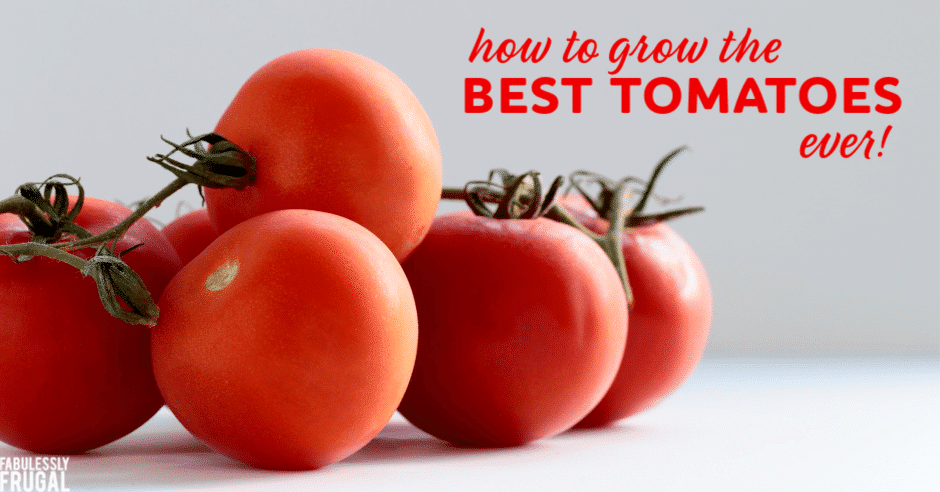
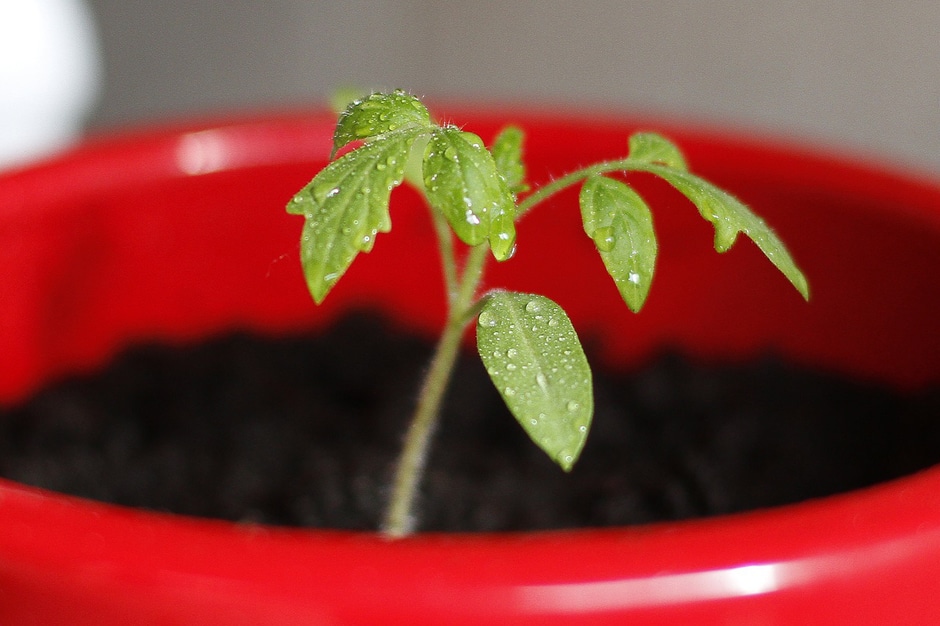
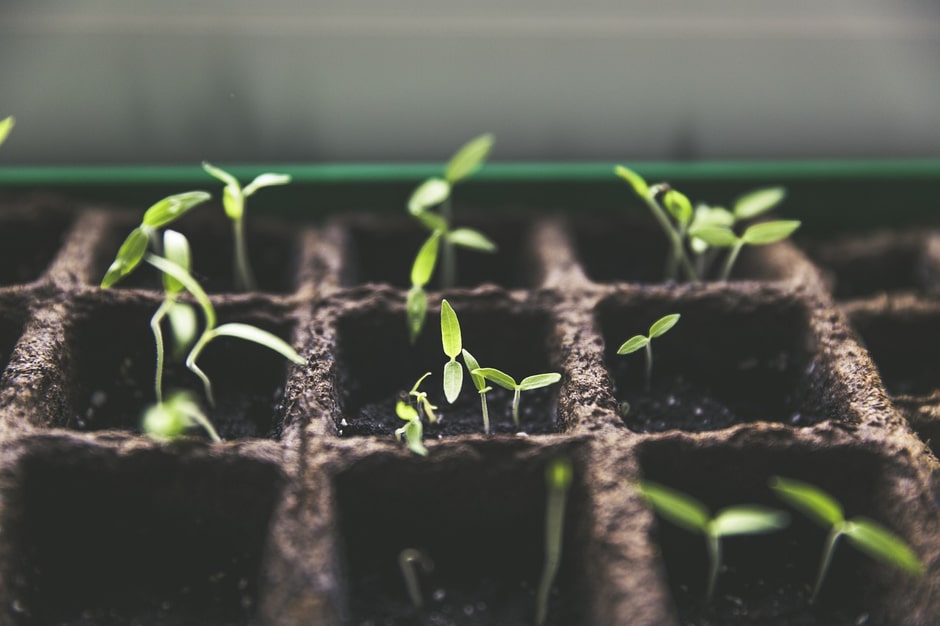
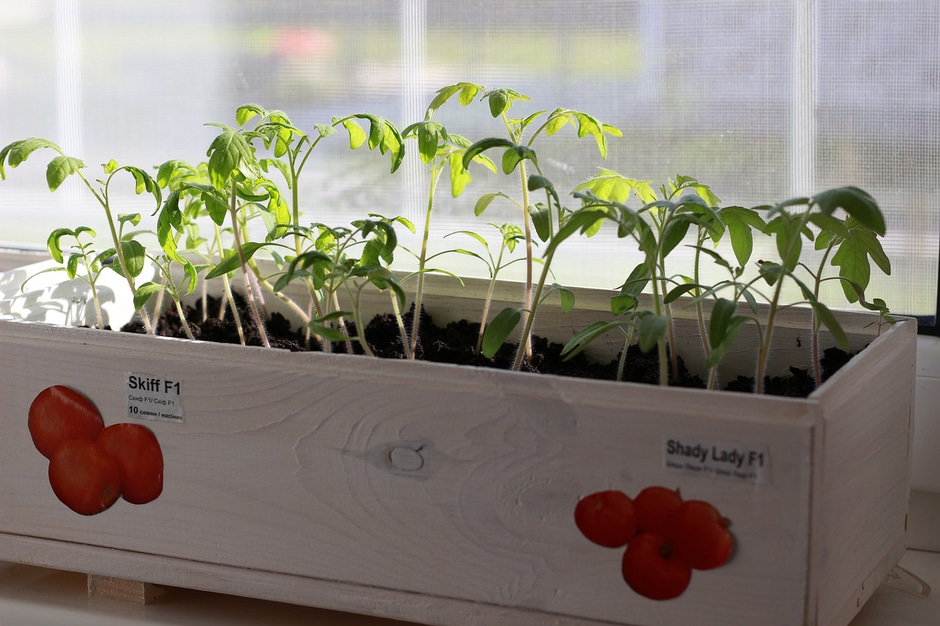
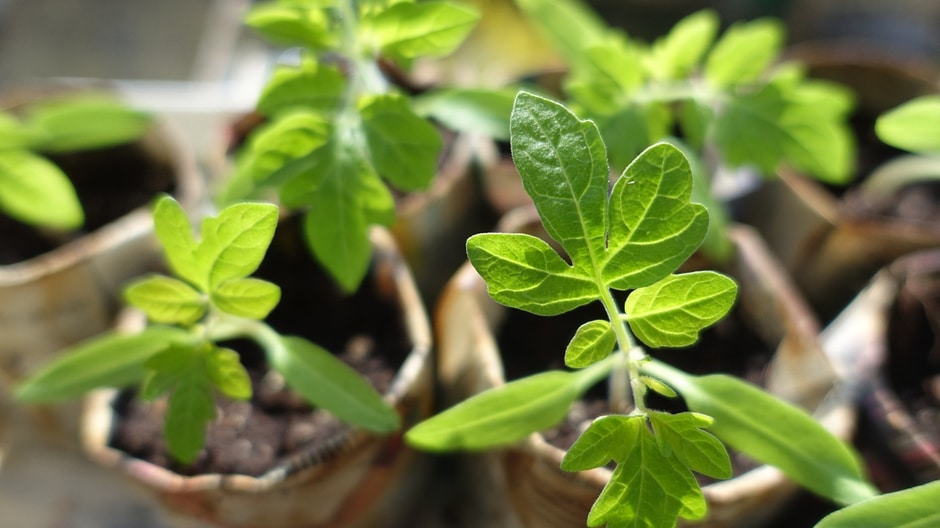
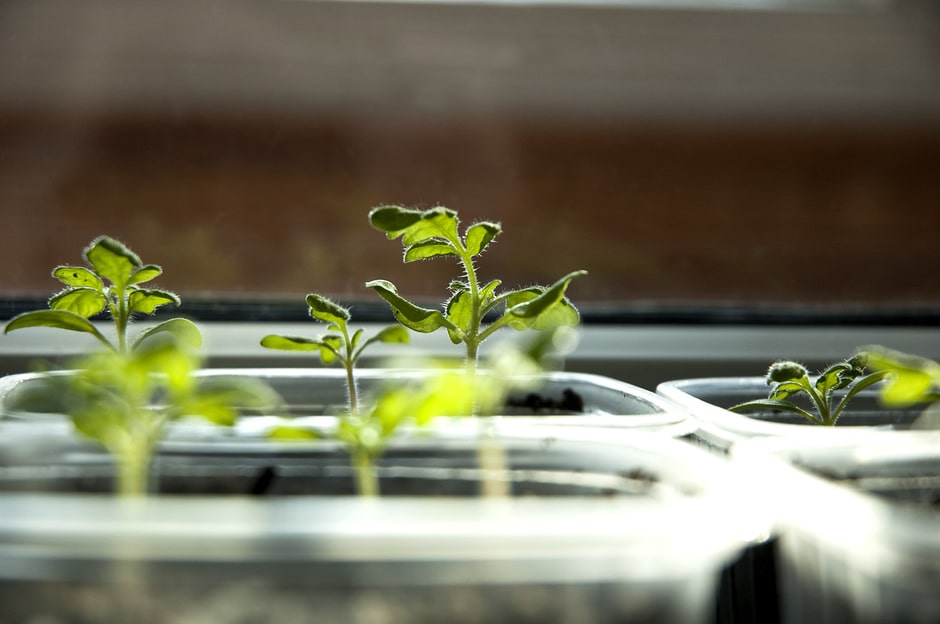
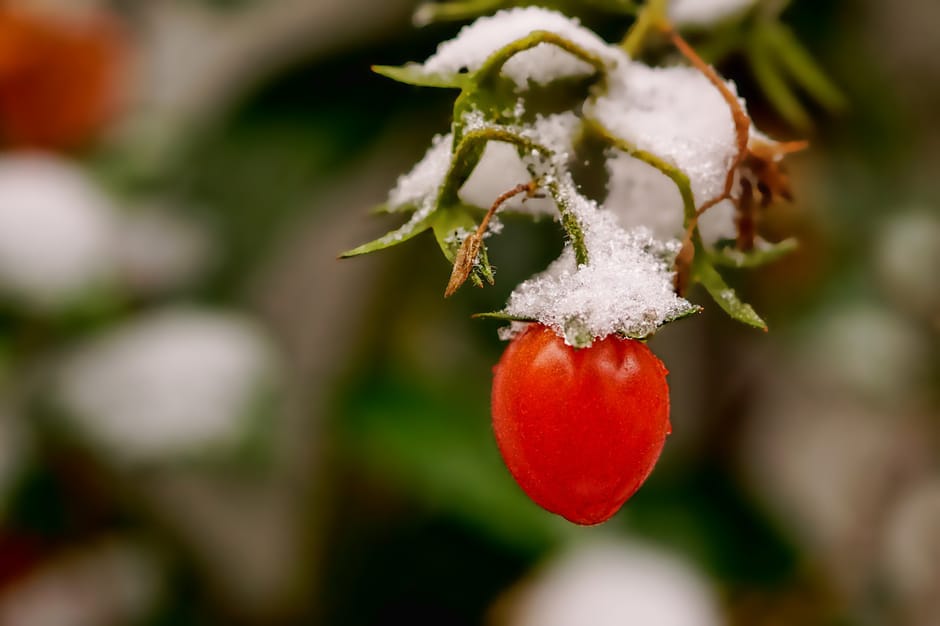
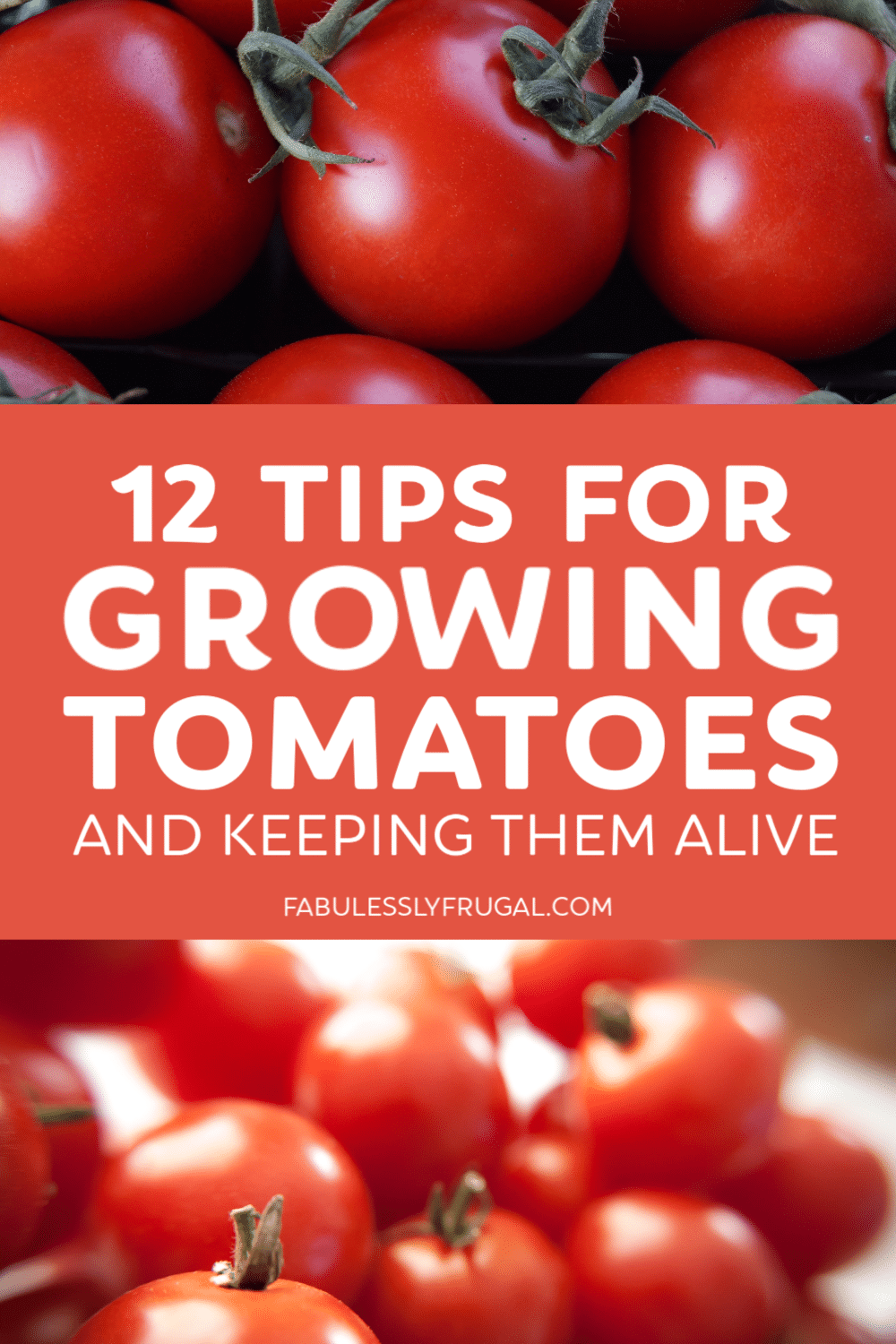
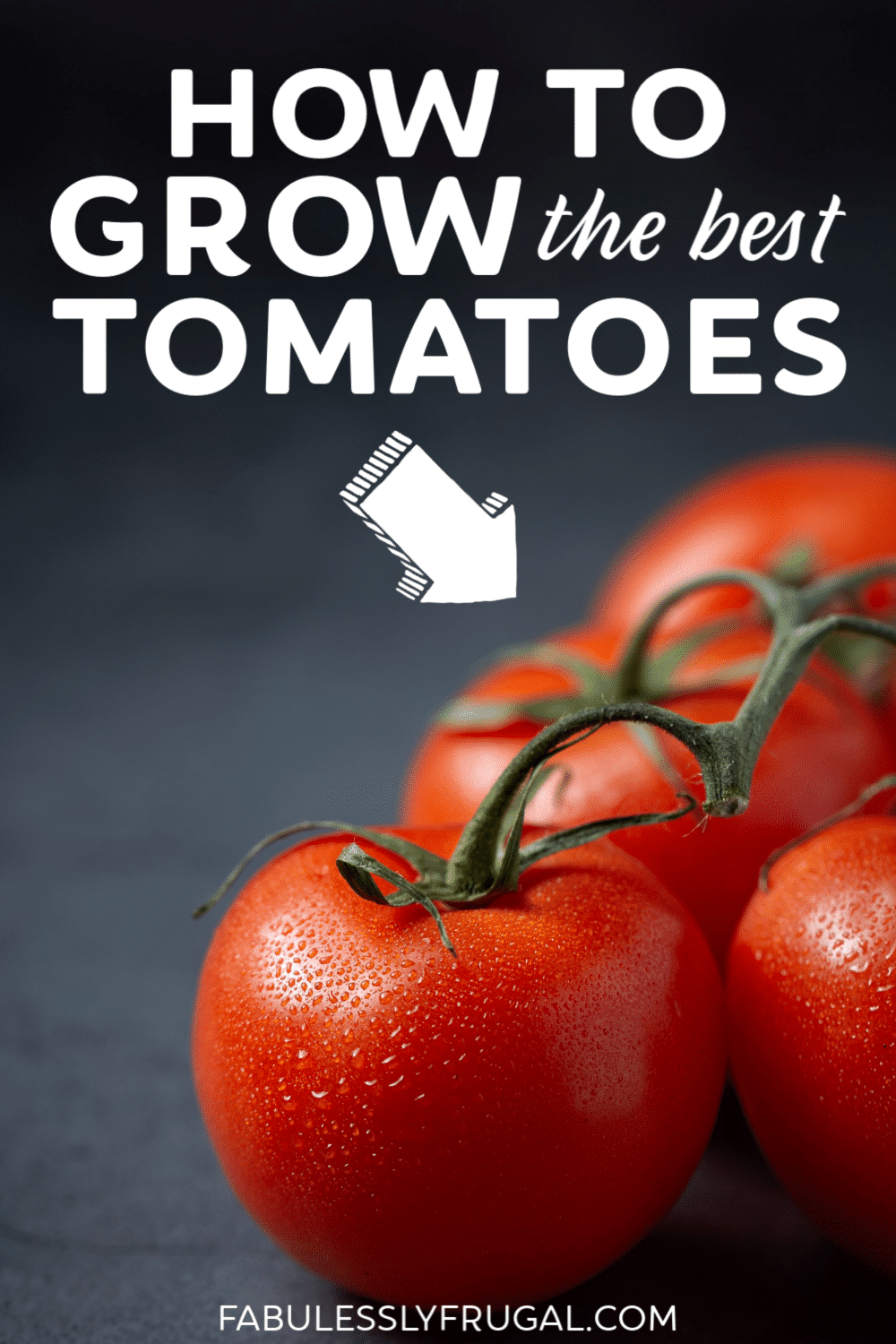
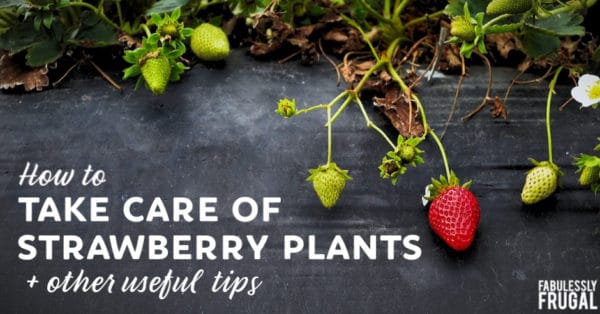







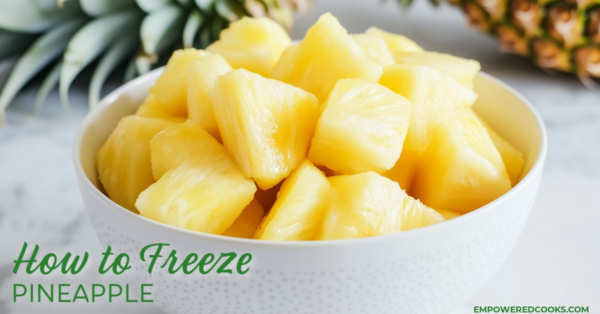






It’s ok Amber, you’re not the only that kills plants. I couldn’t even grow herbs two years ago when I tried. How pathetic is that? Some of us just don’t have the green thumb!
Coffee grounds are great fertilizer for tomato plants. Starbucks will give you their daily used coffee grounds for FREE! Just ask (even at the drive up window)